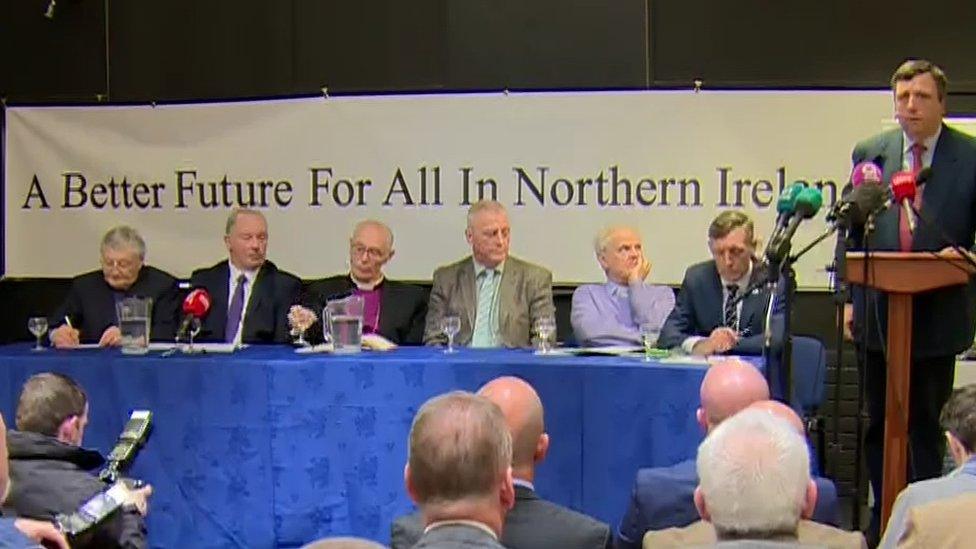'158 security-related deaths' since Good Friday Agreement
- Published
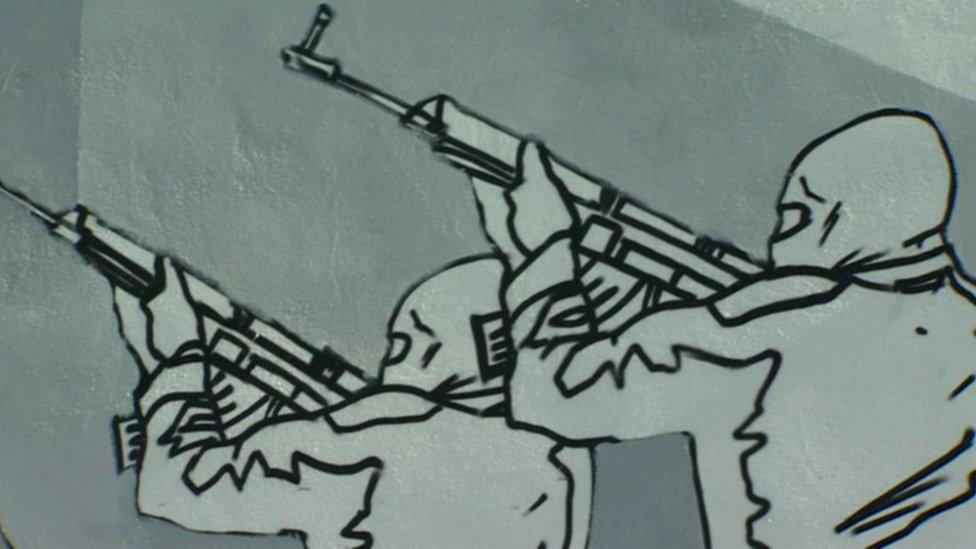
Republican and loyalist paramilitaries have been killing people from their own communities
There have been 158 "security-related" deaths in Northern Ireland since the 1998 Good Friday Agreement, according to independent research.
The majority of the deaths were murders carried out by republican and loyalist paramilitaries, who mostly targeted victims within their own communities.
The figures were compiled by researcher Paul Nolan as part of a project marking the 20th anniversary of the 1998 deal.
He told the BBC's Good Morning Ulster programme the death toll "shocked" him.
"I'm one of those people who wouldn't have believed so many people could have been killed in that period," he said.
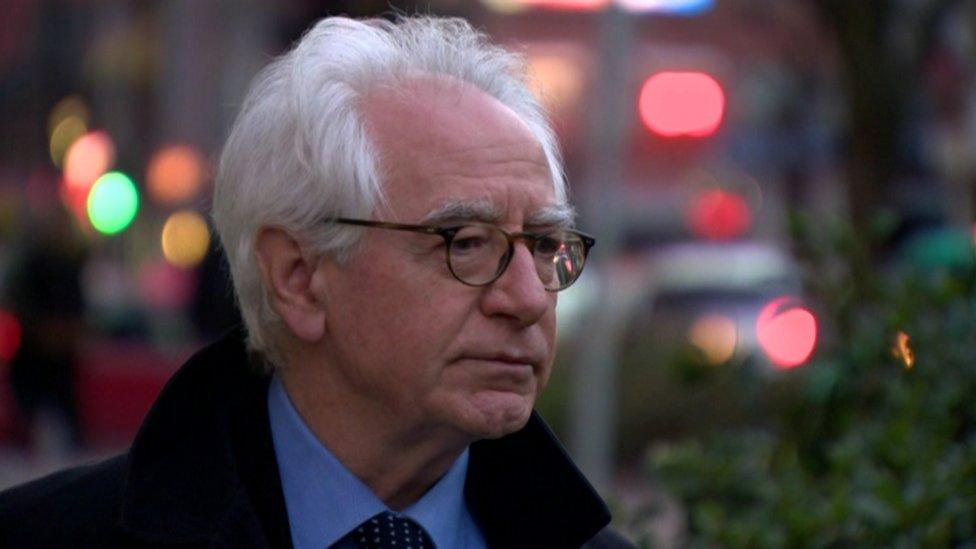
Researcher Paul Nolan is also a member of the Northern Ireland Policing Board
"It was really only when I sat down to track this, as part of a larger study I was doing, and I created a spreadsheet to try and see how many people had been killed and then to try and track them through the criminal justice system."
He found that, up until April of this year, republican paramilitaries were responsible for 74 deaths while loyalist paramilitaries were responsible for 71.
Mr Nolan's research was supported by Queen's University, Belfast, and was published on Monday by The Detail website, external and the Irish Times, external.
The Good Friday Agreement, signed on 10 April 1998, is viewed as a seminal moment which helped bring an end to 30 years of violence known as The Troubles.
However, four months later, dissident republicans killed 29 people in the Omagh bomb - the worst single death toll in a paramilitary attack in Northern Ireland.
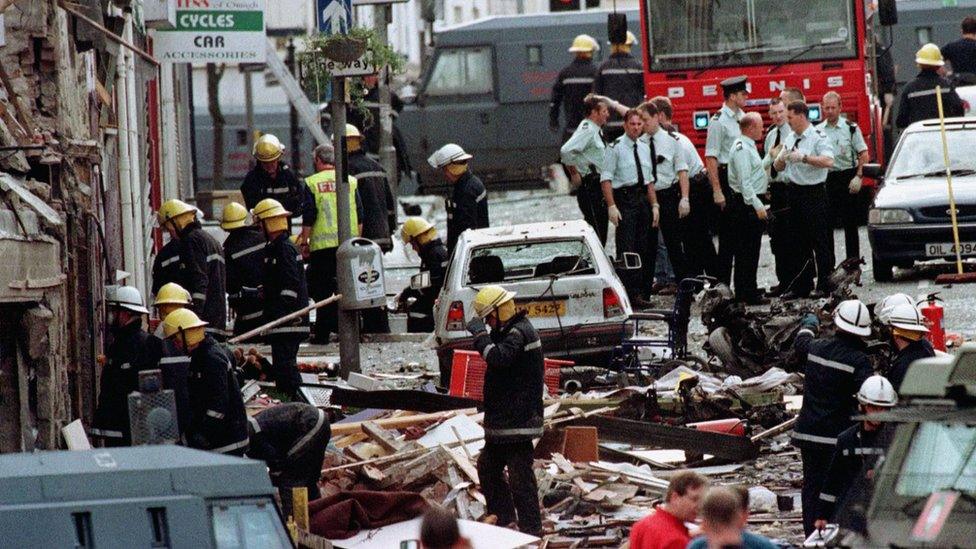
The 1998 Omagh bomb killed 29 people, including a woman pregnant with twins
Although killings continued sporadically after 1998, murders during the Troubles were considerably more frequent.
At the height of the violence in 1972, a total of 480 people were killed within the space of a year.
'Turned inwards'
Mr Nolan told Good Morning Ulster that - with the exception of the Omagh bomb - the pattern of paramilitary murders has changed since the 1998 agreement.
His research suggests that sectarian murders have decreased significantly, but paramilitaries have continued to attack people within their own communities.
"The violence has been turned inwards," the researcher said.
"There have been 68 Catholic civilians killed - 38 have been the victims of republican organisations operating within those same communities.
"There's a further 22 who have been killed by loyalists and then two where attribution is not possible."
Loyalist feuds
Mr Nolan added that although loyalists were responsible for some "sectarian" killings, for the most part their victims were murdered as a result of internal feuds.
"If you go back to that period from 2000 through to 2005, people talk about the loyalist feud," he told the programme.
"There were in fact several different overlapping feuds between the LVF (Loyalist Volunteer Force); the UVF (Ulster Volunteer Force),; the UDA (Ulster Defence Association; the South East Antrim UDA, and of course loyalist feuds continue to this day.
"But, in total, 41 loyalist paramilitaries have been killed. Every single one of them has been killed by other loyalist paramilitaries."
The researcher said that back in 1998, paramilitaries were "built in to the peace agreement" and Northern Ireland society had "come to accept" them.
"I think that we've had too easy an acceptance of paramilitarism and turned a blind eye too often," he said.
"The hold that they have over their communities is very difficult to break."
'Rule of law'
Mr Nolan, who is also a member of the Northern Ireland Policing Board, said he believed Northern Ireland's new paramilitary task force was "trying to close down" paramilitary groups.
The multi-agency task force, led by the Police Service of Northern Ireland (PSNI), became fully operational last September.
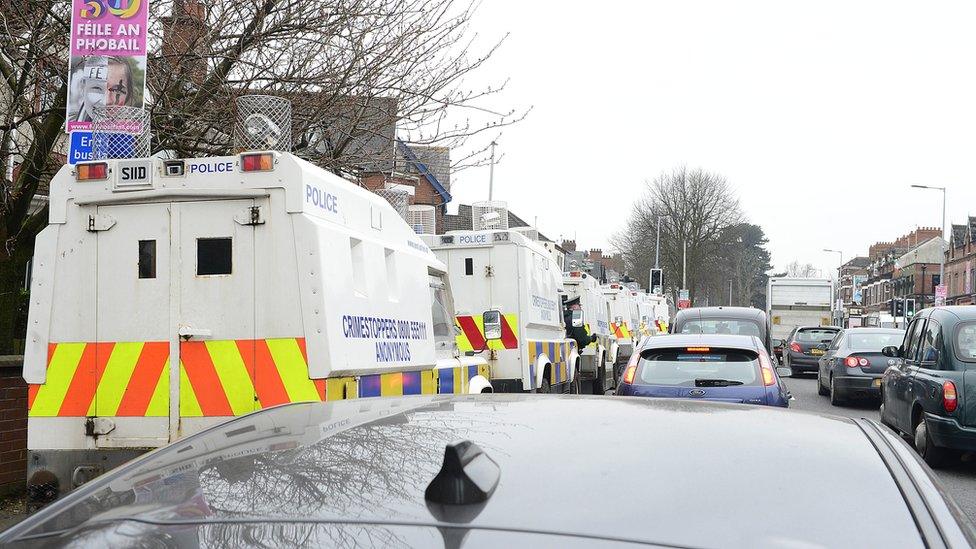
The task force deployed more than 200 officers in a dissident republican investigation this month
It includes staff from the National Crime Agency (NCA) as well as customs officers who can provide support in tax and financial investigations.
So far, the paramilitary task force has carried out more than 200 searches and made more than 50 arrests.
Earlier this month, Northern Ireland's three main loyalist paramilitary organisations made a commitment to "fully support" the rule of law.
The UDA, UVF and Red Hand Commando issued a joint statement on 9 April - the day before the 20th anniversary of the Good Friday Agreement.
- Published9 April 2018
